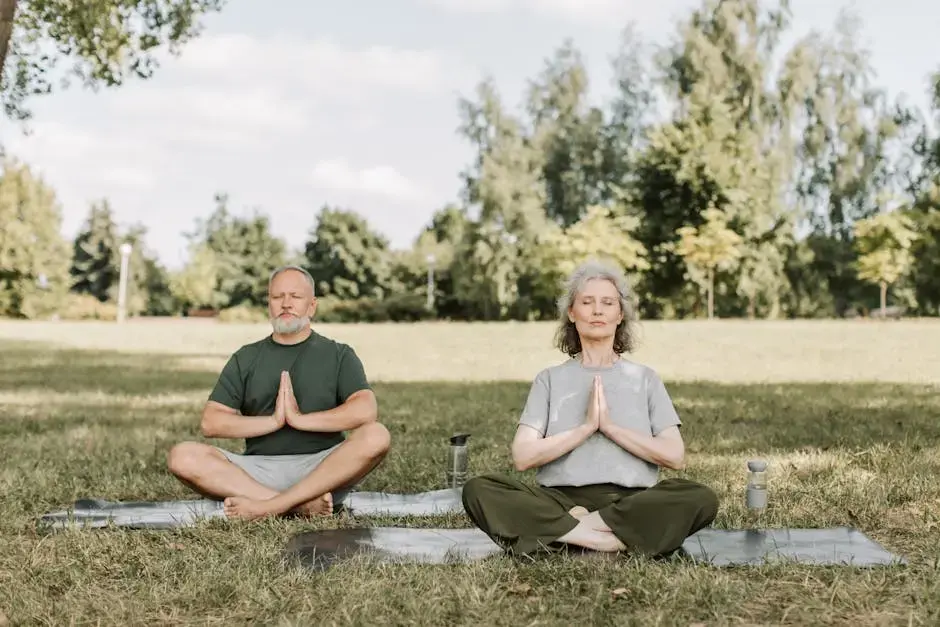How Does Mindfulness Aid in Conflict Resolution for Couples?
- Austin Mindfulness Center
- 11 minutes ago
- 3 min read
Conflict is a natural part of any relationship, but how we approach these conflicts can make all the difference. Mindfulness—a practice of being present and fully engaged—can offer couples a powerful tool for resolving their issues with greater understanding and empathy. In this blog, we'll explore how mindfulness can help couples navigate the choppy waters of conflict resolution with kindness and clarity.

Understanding Mindfulness
Mindfulness is the practice of being aware of the present moment without judgment. It allows individuals to observe their thoughts and feelings, which is essential in a conflict situation.
When couples practice mindfulness, they cultivate a sense of awareness that helps them recognize their emotional responses to conflict. This recognition is the first step towards constructive conflict resolution.
Moreover, mindfulness encourages couples to pause before reacting. This pause can be crucial in avoiding heated arguments. Instead, partners can gather their thoughts and respond more thoughtfully.
In essence, the practice of mindfulness transforms how couples connect during conflicts. It helps them focus on the present and allows them to engage in meaningful dialogues without being clouded by past grievances.
Recognizing Conflict Triggers
Identifying what triggers conflict can help couples anticipate and navigate disagreements more effectively. Mindfulness aids in recognizing these triggers before emotions escalate.
For instance, a simple disagreement about chores might unknowingly tap into deeper issues like feelings of neglect or frustration. Mindfulness allows couples to become aware of these underlying emotions.
When partners know their triggers, they can communicate proactively about those sensitive topics. This forethought can radically change the dynamic of a conversation, allowing for healthier discussions.
Additionally, using mindfulness can help create a safe space for dialogue. Couples can express their triggers without fear of backlash, fostering an environment of openness and trust.
Practicing Active Listening
Mindfulness encourages active listening, which means truly hearing what your partner is saying rather than planning your response. This fosters empathy and understanding.
Active listening can be challenging, especially during disagreements. However, being mindful helps couples focus on their partner’s words instead of letting distractions or defensiveness creep in.
Moreover, when both partners engage in active listening, it can create a cycle of trust. Feeling heard reduces defensiveness and encourages more honest communication in return.
In practical terms, a simple nod or verbal affirmation can signal to your partner that you are engaged and value their feelings. This can lead to deeper connections and more effective conflict resolution.
Responding with Compassion
A mindful approach encourages patience and compassion during conflicts. This means responding thoughtfully instead of reacting impulsively, leading to more constructive conversations.
For instance, rather than lashing out in frustration, couples can take a step back and express their feelings calmly. Phrasing your needs in 'I' statements can also foster a collaborative environment.
Compassionate responses can demonstrate to partners that you value their perspectives, even when you disagree. This shift in intentions can heal hurt and pave the way for better understanding.
Furthermore, showing compassion often comes down to empathy—seeing things from your partner’s viewpoint. With mindfulness, you are more equipped to step into their shoes during disagreements.
Establishing a Mindful Routine
Creating a routine that includes mindfulness practices can help couples approach conflicts more calmly. This may include meditation, breathing exercises, or simply setting aside time to talk.
Establishing a routine sends a message to both partners that they are committed to resolving conflicts peacefully. It can be as simple as discussing concerns over a cup of tea, fostering a relaxed atmosphere for communication.
Incorporating mindfulness practices together can strengthen the couple’s bond. Whether it’s yoga, nature walks, or practicing gratitude, these moments nurture connection and understanding.
Regularly engaging in these practices allows couples to sync up emotionally, making it easier to navigate conflicts when they arise. The awareness cultivated can translate seamlessly into their discussions.
Embracing Mindfulness for Stronger Relationships
By incorporating mindfulness into your conflict resolution toolkit, you can foster a deeper connection with your partner and approach disagreements with a calm mind and open heart. Ultimately, this practice encourages more effective communication and strengthens the bond between you and your partner. Remember, every conflict is an opportunity for growth; embrace it together with mindfulness.




Kommentare